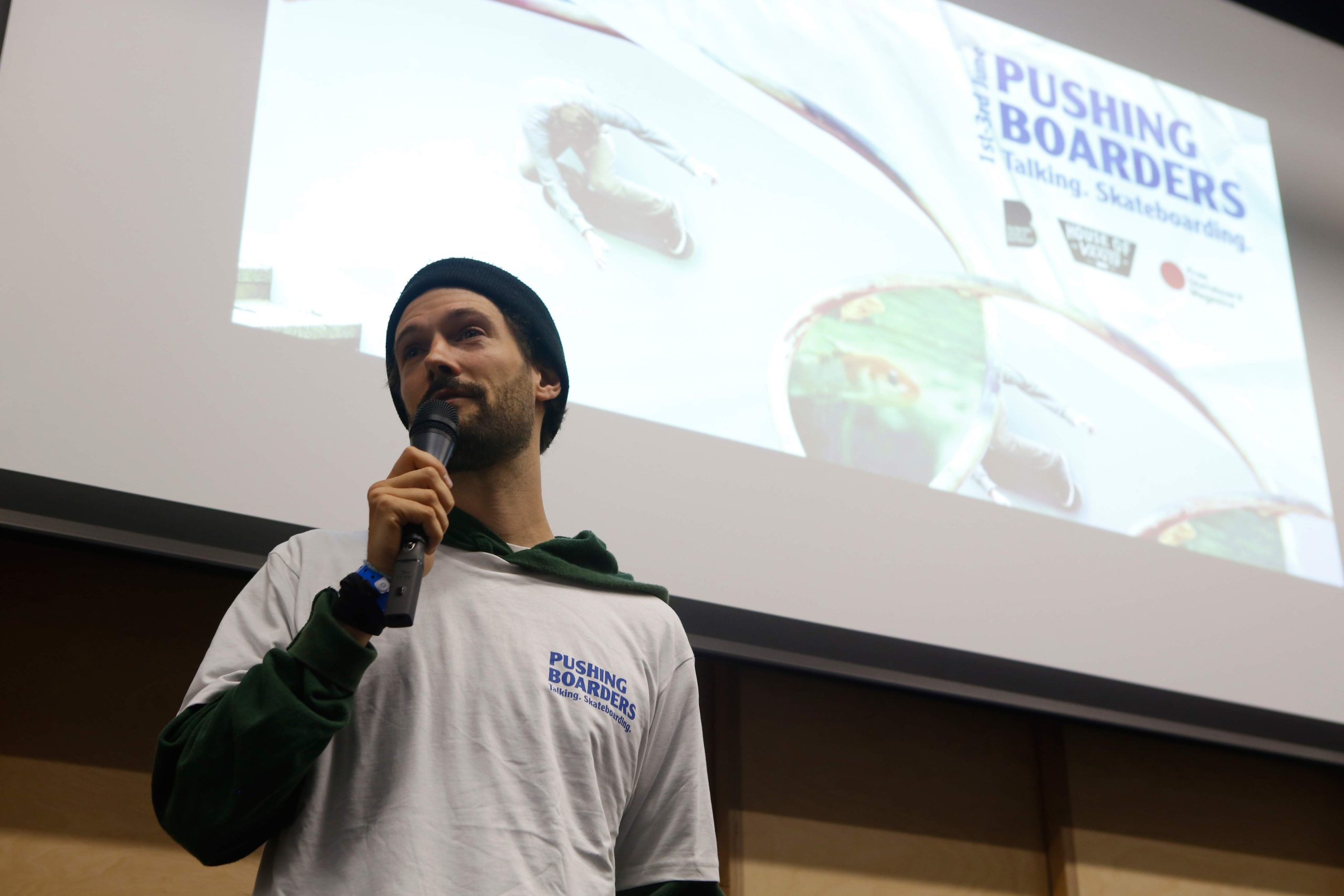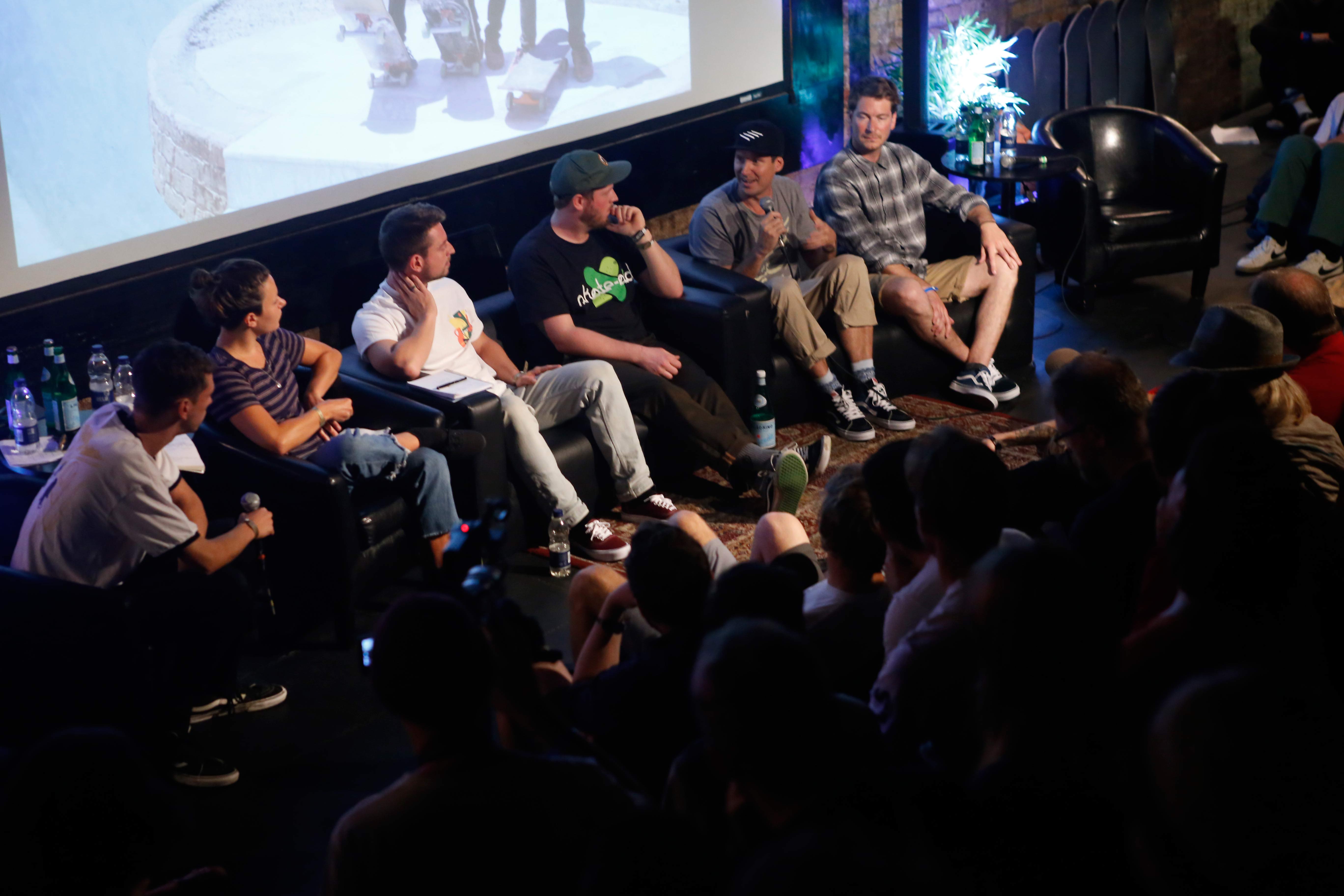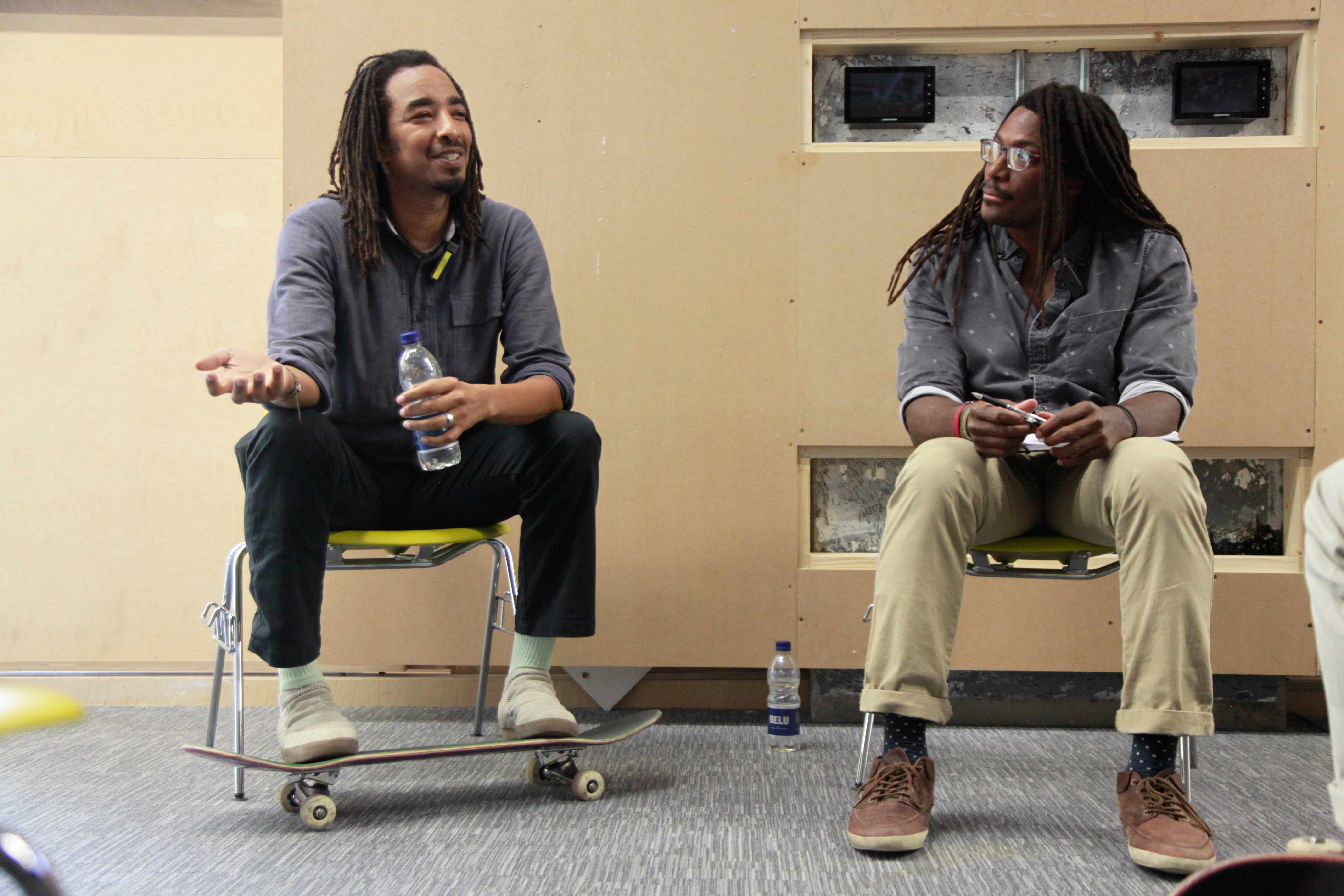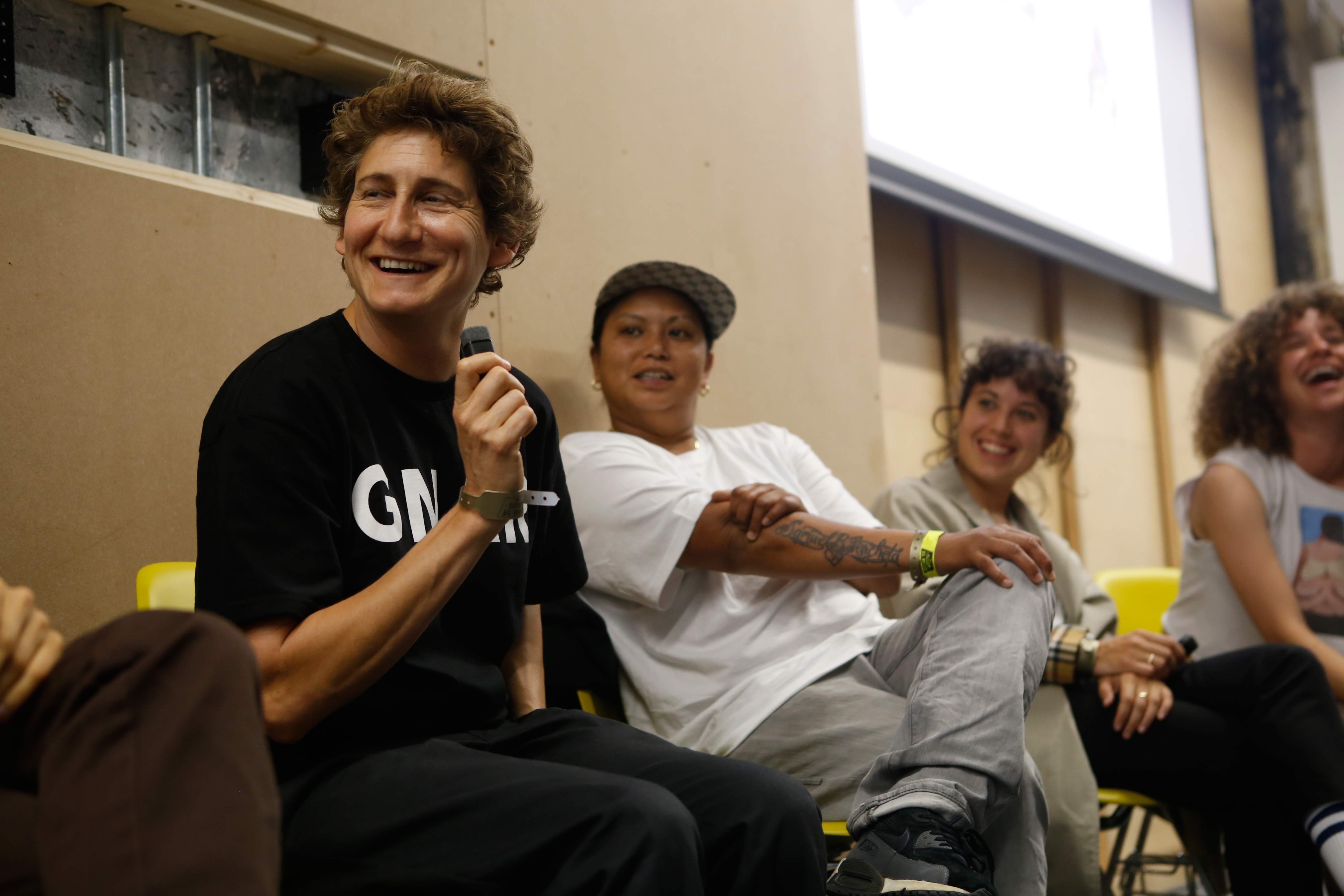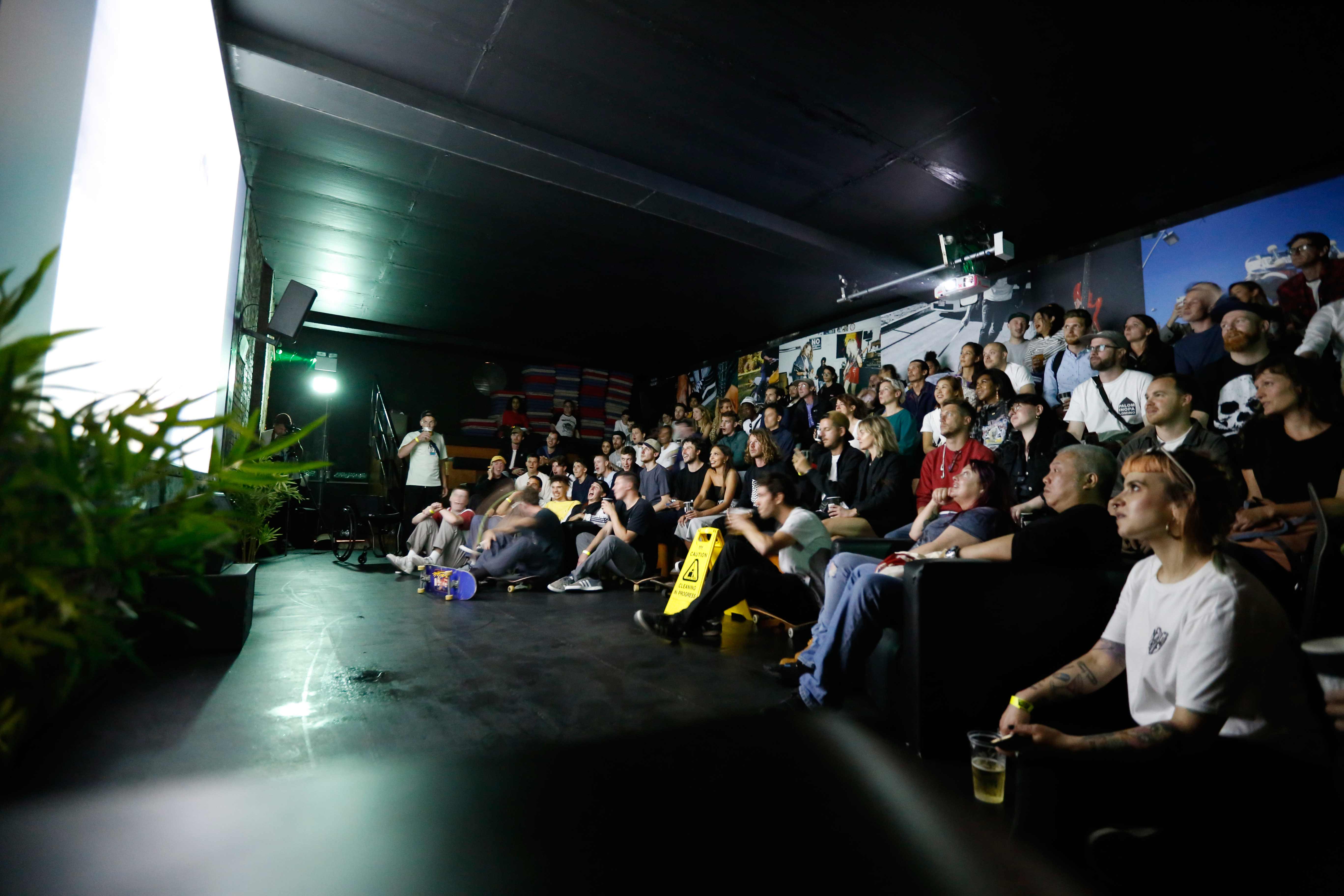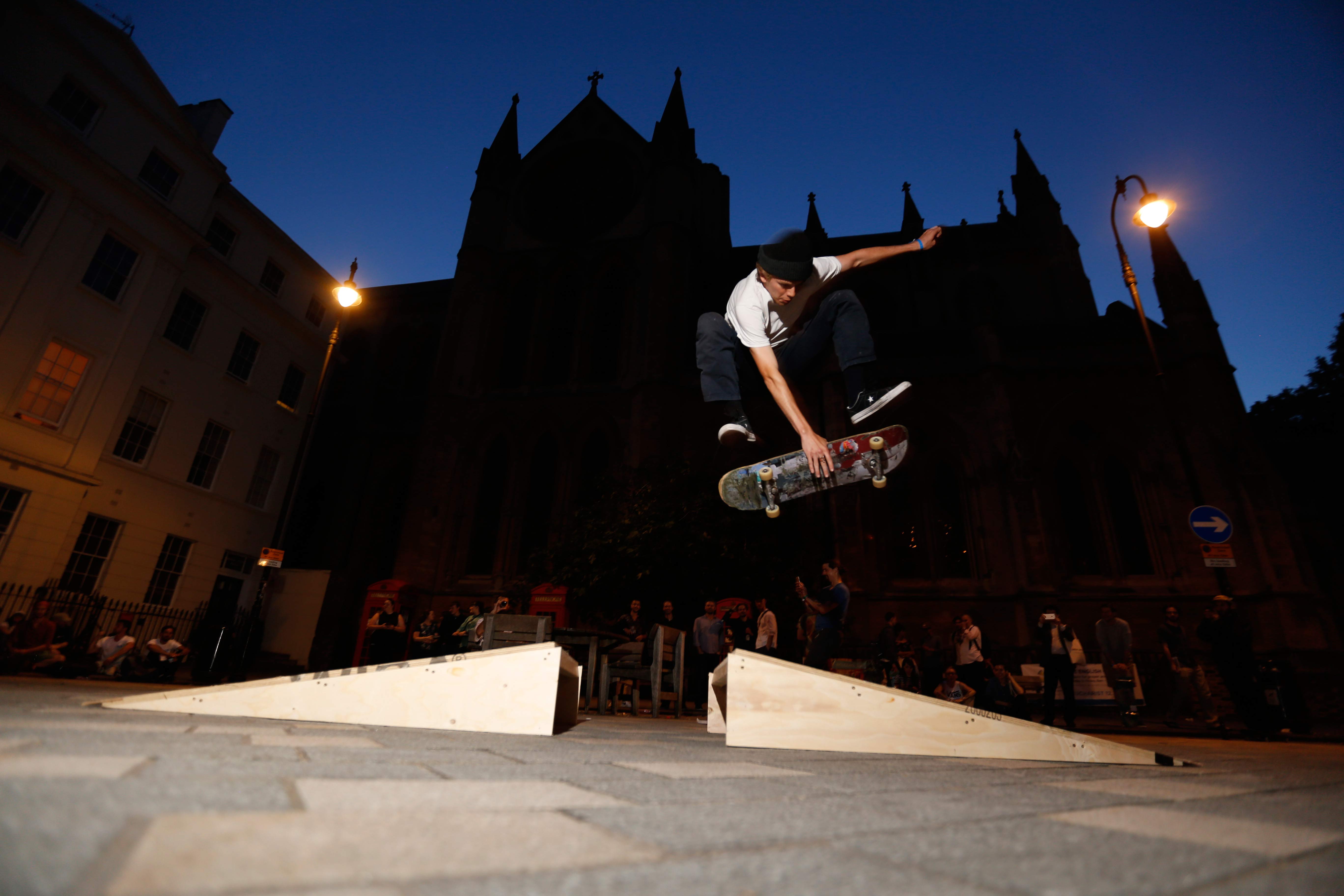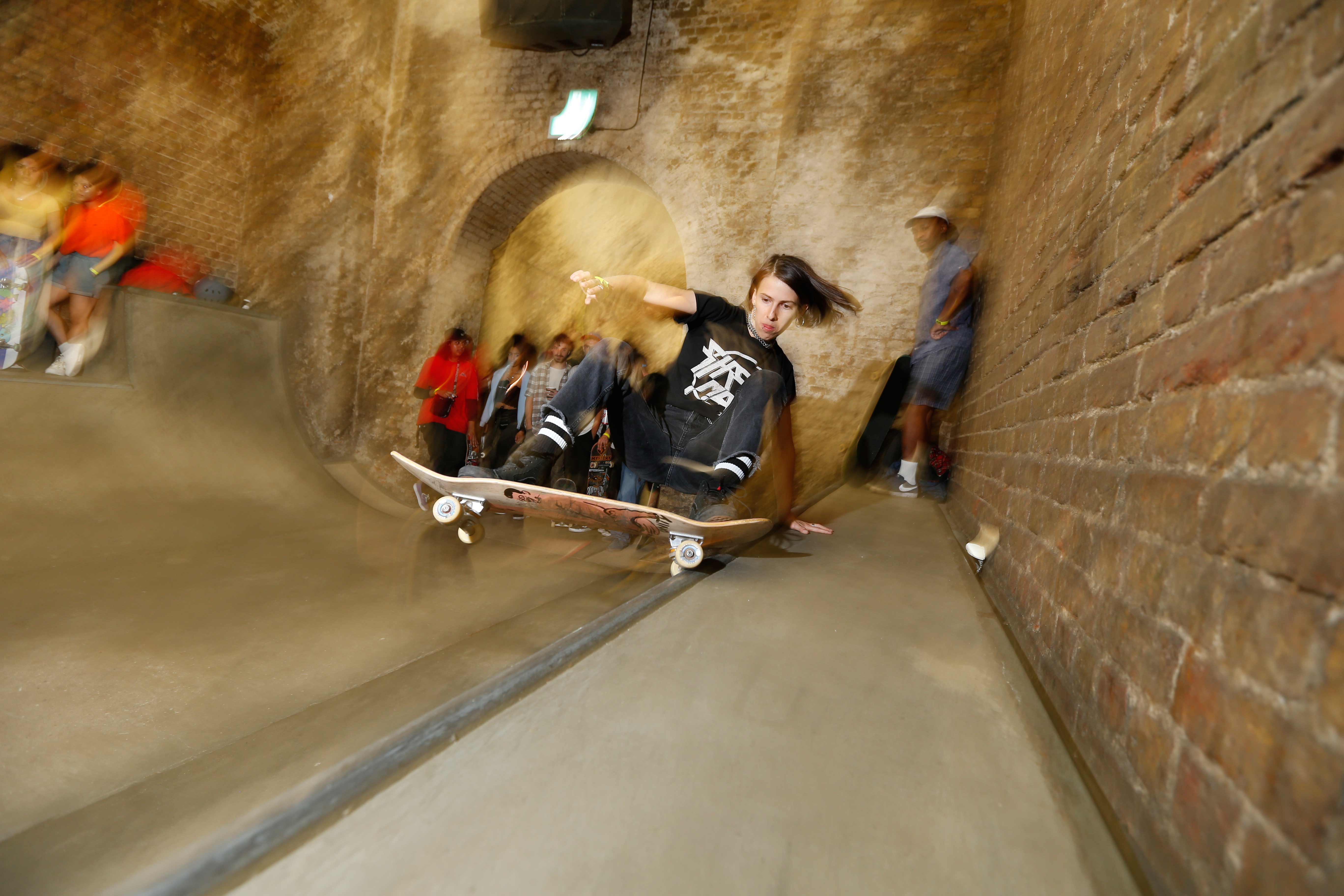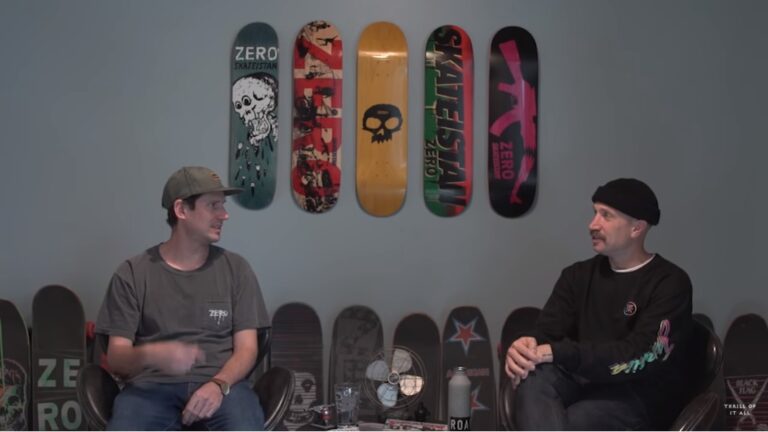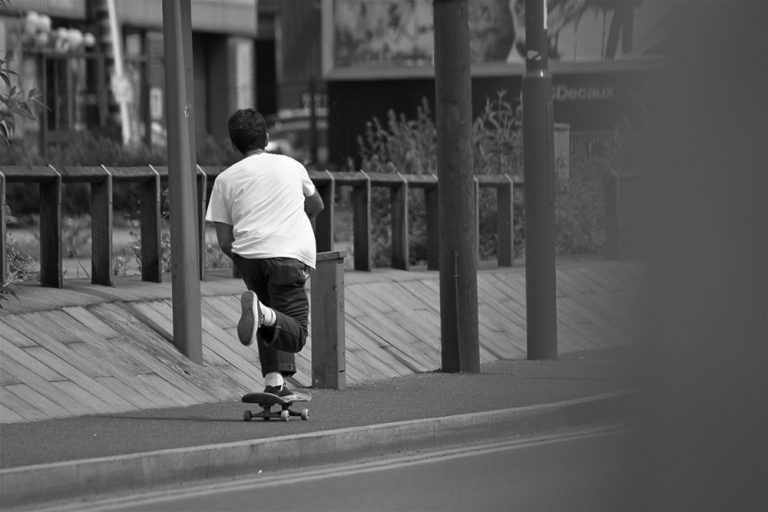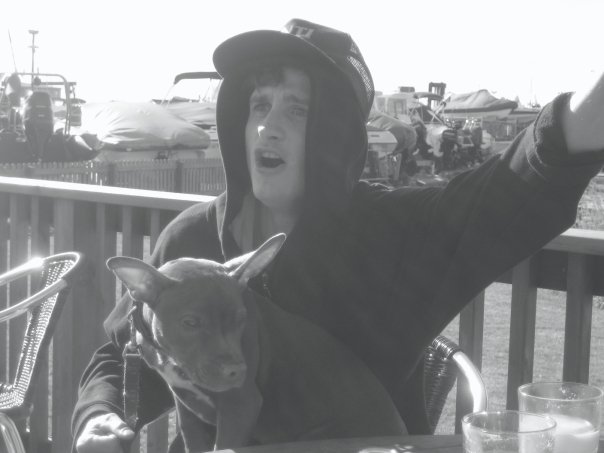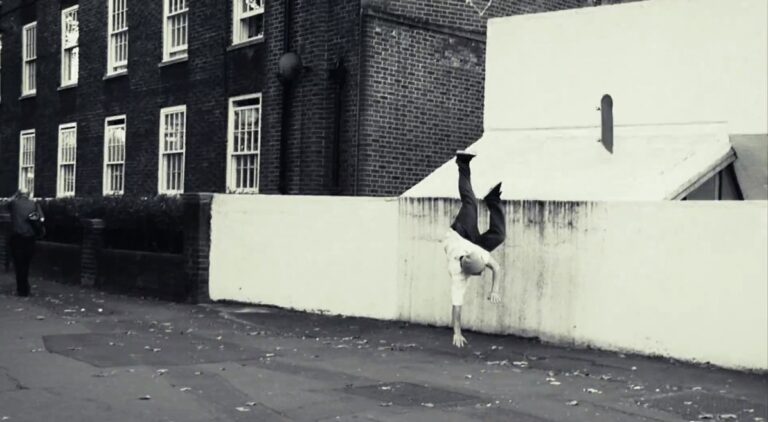London’s Bartlett School of Architecture hosts Pushing Boarders – the world’s first academic skateboarding conference
Text by Dani Abulhawa, Thom Callan-Riley, Sander Hölsgens
On a sunny weekend in June, hundreds of skateboarders assembled at The Bartlett School of Architecture and House of Vans for the first ever international conference on skateboarding. Pushing Boarders was the outcome of years of planning, thinking and skating. What started out as a few independent plans for small events in London culminated in an exciting collaboration; the central organisers were Theo Krish and Philip Joa from SkatePal, Stuart Maclure from Long Live Southbank and Thom Callan-Riley, Dani Abulhawa and Sander Hölsgens from Re-verb Skateboarding, all working toward the aim of highlighting a range of practices and diversity within our strange but beautiful culture.
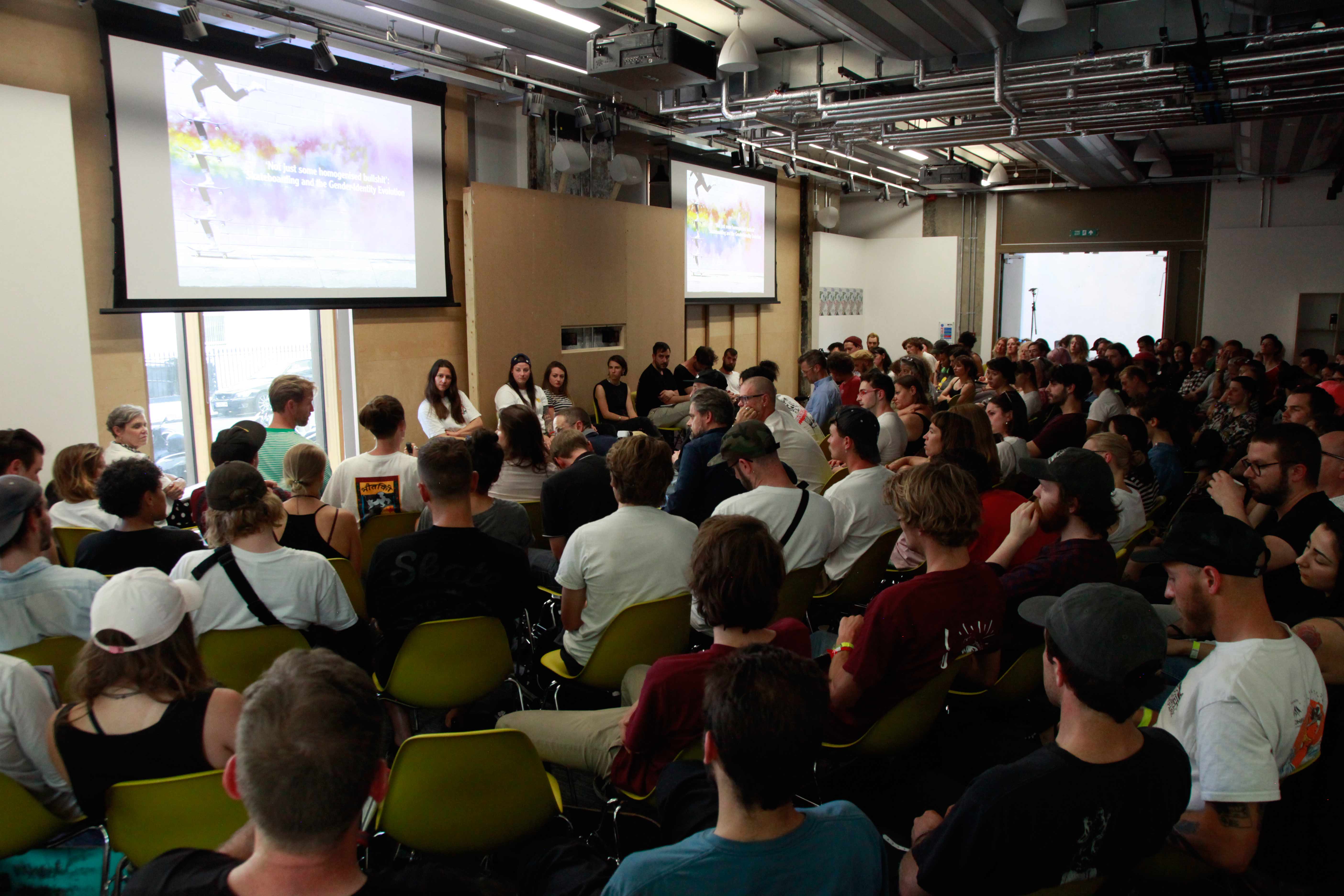
Photo: Wade Trevean
Since the foundation of Skateistan, the link between charities and skateboarding has been strong and fruitful, and the connection between universities and skateboarding has also been growing. Scholars like Iain Borden, Becky Beal and Ocean Howell have been researching and writing about skateboarding since the 1990s, and in recent years there has been a significant rise in skateboarders pursuing PhDs and writing about skateboarding. Bringing these academics together with pro-skaters (and academic pro-skaters like Alexis Sablone), leading skate charities, and skate collectives, we were overwhelmed by the upswell of interest that materialised for Pushing Boarders. With over 1700 people registered for the event, and with only standing room for each of the panels, it’s fair to say there’s clearly an interest in talking about skateboarding.
The presence of such an enthusiastic audience meant that there were great moments of discussion and feedback within sessions – an event full of skateboarders naturally brought with it vocal recognitions of stoke and the literal calling out of differences in opinion. There was a huge generosity and openness and lack of self-importance, as we engaged in what seemed like a collective unpacking of this thing called skateboarding that we have invested so much time and care in over many years, and for some people, decades.
The three-day event began with an academic forum on the Friday afternoon. There’s some amazing writing on skateboarding out there, and Re-verb Skateboarding organised the forum to bring scholars together and encourage young blood to develop their ideas among their peers and perhaps consider a career in academia. It is possible to get an MA or PhD in skateboarding, and there’s an endless number of research areas to dive into. The forum hosted a range of critical discussions on skate films (Glen Wood, Adam Hebert, Cayla Delardi), educational and urban skateboarding projects (Kirsty Smith, Luke Cianciotto, Kelli Watson, Matthew McDonald), Olympic training practices in China (Austin Li), and skate trick notation (Henry Edwards-Wood), amongst other things.

